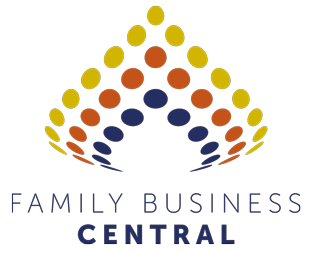
Three Generations in One Room
I often reflect at how amazingly blessed I am to work with incredible families who are working to build a solid legacy for both the business and their family.
Families come in all shapes and sizes; we often get two generations in a room discussing succession planning. However, every so often we get three generations in one room to discuss their family business – and this is a very special event.
The main reason we get the family together is around developing and writing a family charter. We meet with the senior generation first as there are often things they need to decide before we bring in the wider family. Once those decisions are made, we get the whole family in. This could include kids as young as 15-years-old, who handle themselves with amazing maturity.
These family succession meetings are big meetings. Usually, we need three and sometimes four full days of meetings to get through all the issues they must think through to get their family charter set up and get their family legacy planning underway.
The most obvious topic is, of course, succession. Who is going to own the business? Who is going to lead the business? Who is going to be on the board of the business? What are the rules and expectations around all this going to be? This is less than half of what needs to be covered. The rest of it includes:
- Who is considered family?
- What are the values of the family?
- What are the family’s vision and principles?
- What are the rules that every family member wants to be held to?
- How does the family handle money, philanthropy, conflict, etc.?
- Who is on the Family Council and what is the Family Council responsible for?
We have had many examples of having three generations in the room: the grandparents, parents, and the kids – the dreaded Millennials and Gen Zs. Sometimes this means we have 18-20 people in the room with the youngest in their teens – and the generation gaps can be very wide indeed.
While it does take a bit of setting up to get these family business meetings to run well, when they do happen, they are amazing.
What older generations can learn from Millennials and Gen Zs
We often make all sorts of assumptions about Millennials and Gen Zs and they are often not complimentary. Our experience working with a lot of them is that they are amazing. The young women and men are interested, grateful to be included and really want to take part in these discussions. If you think about it, how often does any family really get to sit down and discuss all of this – especially with skilled facilitators to ensure these conversations are productive?
The Gen Zs and Millennials will talk honestly and openly, and they will ask questions that challenge the thinking in the room. They are just as good at talking to their grandparents as to their parents and their uncles and aunts.
They are often hungry for information, especially about what has happened in the past and what might be possible in the future.
I remember a family meeting where the father spent an hour talking to the whole family about the horrendous time he had to work through in the business. None of the kids knew anything about that except that they had an extremely stressed (and grumpy) father on their hands for many months. As the father talked, he teared up at the memories and took time explaining both what had happened and why he couldn’t talk about it at the time. The kids were amazing! There was almost a collective sigh of relief at the end. A family mystery was no longer a mystery. They knew why dad was behaving as he was. There was a real and important reason behind it.
In another meeting, a 15-year-old was putting up her hand and eagerly asking questions – you could easily see her in charge of the business in 20 years’ time. Her eyes were bright with excitement and anticipation.
Then you look at their emotional literacy – this is where they can really teach us a thing or two. The Gen Zs and Millennials seem to have a comfort and acceptance that us humans are indeed emotional beings. That families are emotional and that it is OK to talk about emotions. Several times we have seen this generation literally teach the older generations about what we technically call ‘emotional literacy’ – an awareness and understanding of one’s emotions. This is particularly true when there has been a death in the family. We watched a group of young people start to acknowledge what it meant after their grandfather had died. It then enabled a wonderful conversation for the whole family about how much they missed him and how the effect of his death, now a while back, was still rippling through the family.
The outcome of this is the three generations coming to these discussions with their different experiences and opinions, held together by a shared sense of what it means to be in this family, and starting to build an exciting future.
For most families, they have never really talked about all this before. It has just been assumed or even hushed up. So, asking them to think about the words that make up their vision, the words that form their core family principles, and what this all means in reality, is an important discussion. From there, we follow on with discussions around what they want to do with the business or set of investments, we do family legacy planning and the outcomes are eye-opening and rich.
As it was International Women’s Day on March 8th, it got me thinking about these types of meetings. It is incredible to see these amazing young women standing up for themselves, asking questions and expecting (and getting) a real seat at the table. They are smart, eloquent and knew they had their family’s support. There was never any ‘whining bloke’ at the back making fun, putting them down or sneering. These were genuine conversations, based around clear expectations and merit that everyone had an equal opportunity to try out for.
This is where family business often leads the way. We see amazingly talented women being offered opportunities that would be very hard to get anywhere else: leading and building businesses as well as leading and building their families. Often there is rarely any fuss made about it, the family just get on with it. In one family I know, it happened because it made the most sense for their daughter to lead the business. She has since grown that business three-fold in her time so far.
So, here is a salute to the Gen Zers and Millennials out there, especially the young women. And to the families that support and back them.
For further information, our colleague Susanne Bansgrove from Liquid Gold Consulting is running a webinar on gender and succession which we’d encourage you to attend.
Contact us using the form below or email us at philip@familybusinesscentral.com for further information on building your family charter, and we can walk you through the steps.

